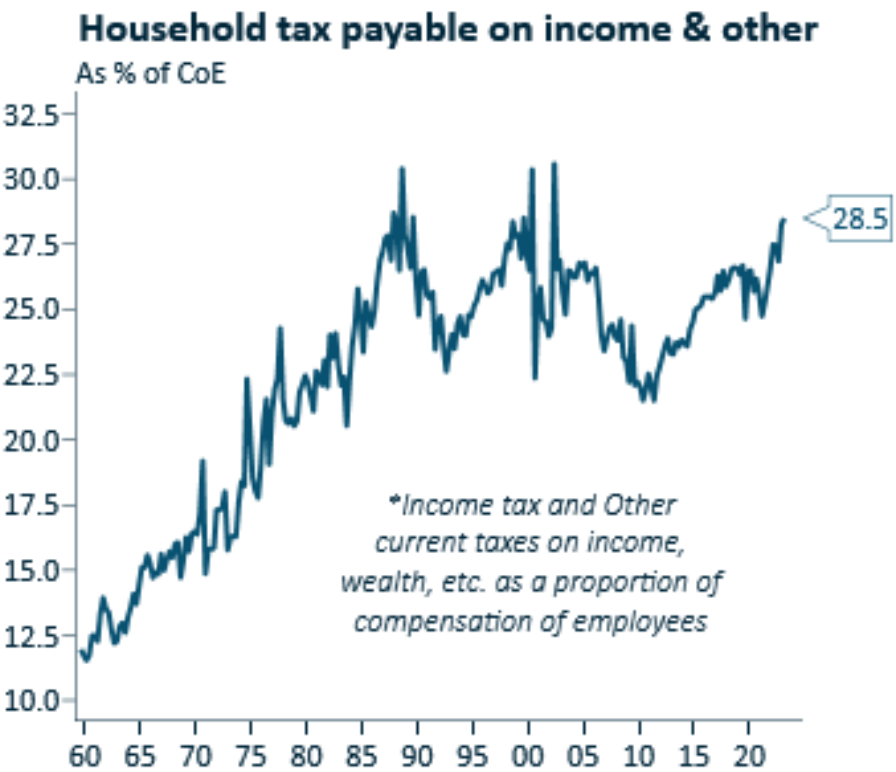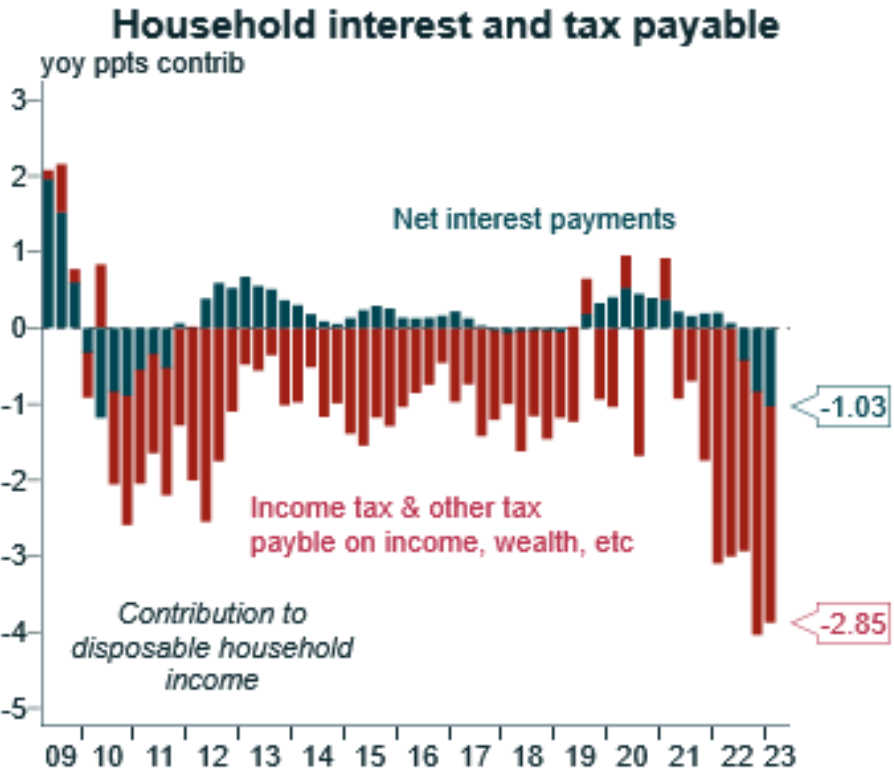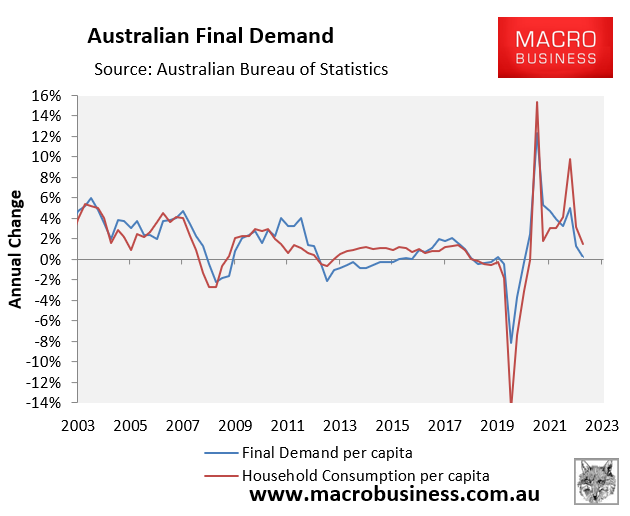Earlier this month, the Australian Bureau of Statistics (ABS) released cost of living indices for the June quarter of 2023.
This showed that employee households recorded the strongest quarterly and annual rises in their cost of living on record, driven mostly by surging mortgage interest charges:

Source: ABS
As shown below, mortgage interest charges surged by 92% in the year to June, obviously due to the Reserve Bank of Australia’s (RBA) 4.0% of interest rate hikes:

Source: ABS
At the same time as Australian households are getting hit by soaring mortgage costs, they are being smashed even harder by rising tax payments:

Source: Alex Joiner (IFM Investors)
The above chart from Alex Joiner, chief economist at IFM Investors, shows that income and other taxes have risen to 28.5% of employee compensation.
According to Joiner, income and other taxes have reduced aggregate household income by 2.85%, more than double the 1.03% reduction caused by rising interest payments:

Source: Alex Joiner (IMF Investors)
“Taxes on households are doing far more than net interest in slowing income growth and spending”, Joiner said via Twitter.
This is obviously bad news for the economy given household consumption accounts for around 55% of the economy’s growth on average.
Therefore, where household consumption goes, the economy tends to follow, as illustrated in the next chart:

The only thing preventing Australia from entering a “technical recession” – i.e. two consecutive quarters of negative economic growth – is the Albanese Government’s record immigration program, which is projected to increase the nation’s population by around 2% this year.
Even if a “technical recession” is avoided and Australia’s economy records modest growth, everyone’s share of the economic pie will shrink.
Furthermore, high levels of immigration will crush-load everything in sight, including the rental market, eroding living standards further.

